Autoclave Load Thermocouple (Type 9A)
General Purpose Thermocouples
 Request a Quote
Buy Online from TC Direct
Data Sheet
Request a Quote
Buy Online from TC Direct
Data Sheet
TC - Trusted by UK manufacturers, OEMs, and research labs for over 50 years.
Related Products
Feedthroughs for single elements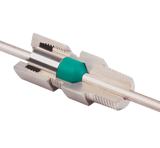
Related Products
Standard Plug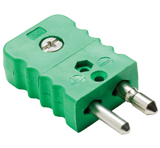
Related Products
Standard Socket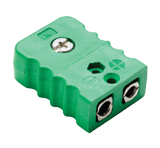
Related Products
Miniature Plug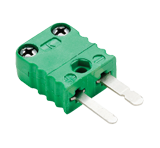
Related Products
Miniature Socket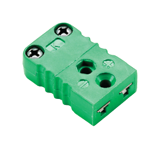
The harsh conditions found in the autoclave chambers of sterilisers require a reliable thermocouple, as all too often sensors can fail and instrumentation be damaged through ingress of moisture. These autoclave load thermocouples offer a reliable solution to the problem.
Available in thermocouple types T or K, they can be supplied as simplex or duplex assemblies and comprise of a stainless steel sensor tip, a length of cable inside a flexible stainless steel conduit, a stainless steel feed-through and then flying leads oversheathed with silicone rubber. An Autoclave Drain Thermocouple is also avaialble.
Available in thermocouple types T or K, they can be supplied as simplex or duplex assemblies and comprise of a stainless steel sensor tip, a length of cable inside a flexible stainless steel conduit, a stainless steel feed-through and then flying leads oversheathed with silicone rubber. An Autoclave Drain Thermocouple is also avaialble.
Frequently Asked Questions
- What is a thermocouple and how does it work?
A thermocouple is a type of temperature sensor that generates a voltage when two different metals are joined at one end and exposed to a temperature difference between the "hot" junction (where the temperature is measured) and the "cold" junction (the reference point). This voltage is then measured to determine the temperature at the hot junction. - How do I choose the right thermocouple for my application?
The ideal thermocouple depends on factors such as temperature range, accuracy, termination type, mounting requirements and environmental conditions. We offer a variety of thermocouples with different sheath materials, constructions, terminations, and temperature ratings to meet your needs. If you need specific advice, our engineers are happy to assist! - What is the maximum temperature rating of your thermocouples?
Our thermocouples are designed to handle a wide range of temperatures with some mineral insulated thermocouples able to withstand temperatures up to 1400ºC and ceramic sheathed thermocouples going even higher to 1600ºC. Each product listing includes the maximum temperature rating, so you can choose the best thermocouple for your application.

 France
France Germany
Germany Spain
Spain Netherlands
Netherlands Italy
Italy Hungary
Hungary United States
United States Australia
Australia